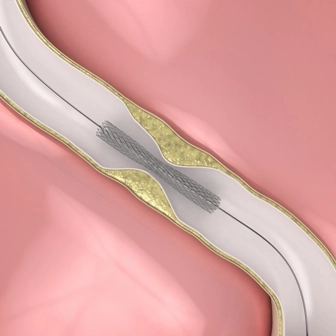CERT Report says 10.9 Percent of Cardiology Visits Were Paid Improperly
Here are the claims that could be costing your practice well deserved reimbursement. Your cardiology practice is probably active and bustling every day, but it’s possible that with all that activity, correct coding could be falling through the cracks. Cardiology practices logged a 10.9 percent error rate, according to the latest report from CMS. You should always pay attention to the medical documentation, so you can avoid making errors in your own practice, says Christina Neighbors, MA, CPC, CCC, Coding Quality Auditor for Conifer Health Solutions, Coding Quality & Education Department, and member of AAPC’s Certified Cardiology Coder steering committee. The backstory: CMS issued its “2018 Medicare Fee-for-Service Supplemental Improper Payment Data” on November 30 as part of its Comprehensive Error Rate Testing (CERT) program. The report breaks down the biggest errors among Medicare claims, and covers the causes of the improperly paid charges. Overall, the government found an 8.1 percent improper payment rate among Part B claims during 2018. Dial Into Cardiology Services With Highest Improper Payments On the list of the services with the most Part B improper payments, CMS reports cardiology visits logged a 10.9 percent error rate, totaling over $429 million in projected improper payments. The documentation error rate is 55.2 percent, while the incorrect coding error rate is 36.5 percent. The CERT report also highlights cardiac electrophysiology. That subspecialty logged a 33 percent improper payment rate, totaling in over $142 million in projected improper payments. The insufficient documentation error rate is 44.5 percent, while the incorrect coding error rate is 8.6 percent. Those statistics are less than cardiology overall, but they are still significant. Break this down: Take a look at some of cardiology-specific services from Table G1: “Improper Payment Rate by Service Types, Part B”: Observe Medical Necessity, Downcoding Errors Several cardiology-related services came in on the top “20 Types of Services With Medical Necessity Errors” table, and that means you should pay extra attention to these claims. Syncope and collapse logged in with a projected improper payment of over $72 million. Chest pain came in with a projected improper payment of over $71 million. Additionally, you’ll find more cardiology related services listed in the “Top 20 Types of Services With Downcoding Errors.” This means that you could be making mistakes that’s costing you well deserved reimbursement. Heart failure and shock came in at a projected improper payment of over $19 million. “Other circulatory system diagnoses,” came in with a projected improper payment rate of $18 million. And endovascular cardiac valve replacement came in with a projected improper payment rate of over $9 million. Observe These E/M Codes Under Scrutiny Though incorrect coding is only one category CMS factors into its overall error rate, the CERT report spotlights the major impact E/M services have on improper payments. The overall impact of all E/M service types on the error rate was 11.9 percent with more than $3.8 billion being improperly paid out to providers for the prominent CPT® codes, according to Table K1 of the CERT report. Here’s a breakdown of the top three E/M codes causing the biggest problems in the CERT data from Table K1: 1. 99223 (Initial hospital care, per day, for the evaluation and management of a patient, which requires these 3 key components: A comprehensive history; A comprehensive examination; and Medical decision making of high complexity…) ranks first on the CERT report’s E/M worries. With an improper payment rate of 27.2 percent, this confusing CPT® code accounted for 1.4 percent of the overall error rate and more than $456 million in improper payments. 2. 99214 (Office or other outpatient visit for the evaluation and management of an established patient, which requires at least 2 of these 3 key components: A detailed history; A detailed examination; Medical decision making of moderate complexity …) took the second spot with an error rate of 4.8 percent and an overall impact of 1.2 percent. This popular E/M office visit code was improperly paid to the tune of $389 million. 3. 99233 (Subsequent hospital care, per day, for the evaluation and management of a patient …), which was the number one E/M issue in 2017, was bumped down to third for 2018, and contributed to 1.1 percent of the overall error rate with an individual code error rate of 19.1 percent. Issues with 99233 contributed to $365 million in improper payments. Heads up: You should also note that 99223, 99214, and 99233, in addition to others in their code groups, are already in various stages of active prepayment review for the MACs that publish their Targeted Probe and Educate (TPE) topics. And according to CMS guidance, providers should expect more scrutiny of these codes and claims down the line. The agency plans to increase its “provider outreach and education” with an uptick of “Targeted Probe and Educate initiative[s] to reach individual providers with educational interventions and we’re also enhancing these efforts to allow for flexible and consistent user training,” CMS Administrator Seema Verma said on the improper payment issues. Resource: To read the full CERT document, visit https://www.cms.gov/Research-Statistics-Data-and-Systems/Monitoring-Programs/Medicare-FFS-Compliance-Programs/CERT/Downloads/2018MedicareFFSSuplementalImproperPaymentData.pdf.




